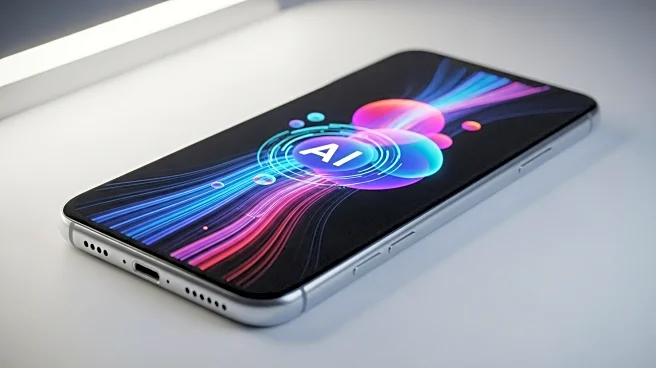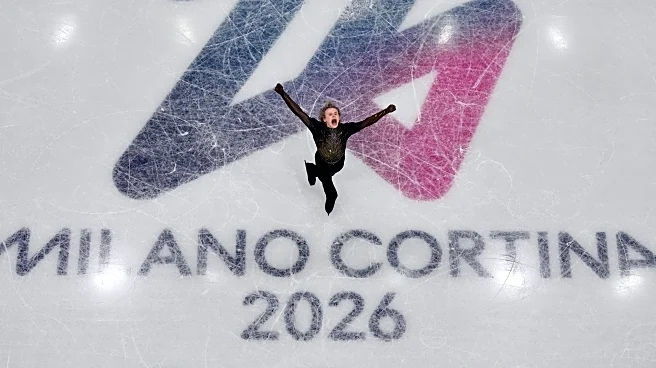What's Happening?
OpenAI has announced the launch of a new social media app powered by its updated AI video model, Sora 2. This app allows users to create and share AI-generated video content, including a feature called 'Cameo' that lets users insert their likeness or others' into AI-generated scenes. The app is currently available to iPhone users, with Android access through web browsers, and requires an invite code for access. OpenAI has implemented content moderation policies to prevent the creation of inappropriate content, and all AI-generated videos will be watermarked to ensure they are recognizable when shared on other platforms.
Why It's Important?
The introduction of Sora 2 by OpenAI marks a significant development in the integration of AI into social media, potentially transforming how content is created and shared. This move could influence the social media landscape by increasing the prevalence of AI-generated content, raising questions about content authenticity and the role of AI in media. The app's focus on AI-generated videos may also impact user engagement and content moderation practices, as platforms grapple with the challenges of managing AI-driven content. Stakeholders in the tech industry, including competitors and regulators, will likely monitor the app's rollout and its implications for privacy, security, and ethical content creation.
What's Next?
As OpenAI rolls out Sora 2, the company will likely face scrutiny regarding its content moderation effectiveness and the app's impact on user behavior. The invite-only access model suggests a gradual expansion strategy, allowing OpenAI to refine its approach based on initial user feedback. The broader tech community may respond with similar innovations, potentially leading to increased competition in AI-driven social media platforms. Additionally, regulatory bodies may examine the app's compliance with privacy and data protection standards, influencing future policy developments in AI and social media.
Beyond the Headlines
The launch of Sora 2 highlights ongoing ethical and legal debates surrounding AI-generated media. As AI tools become more sophisticated, concerns about deepfakes, misinformation, and intellectual property rights are likely to intensify. The app's watermarking feature addresses some transparency issues, but broader questions about the societal impact of AI in media remain. This development may prompt discussions about the balance between innovation and regulation, as well as the responsibilities of tech companies in shaping digital content landscapes.










